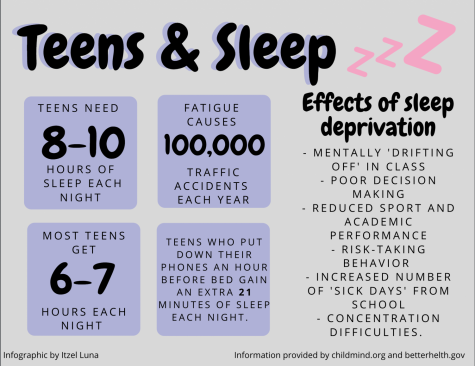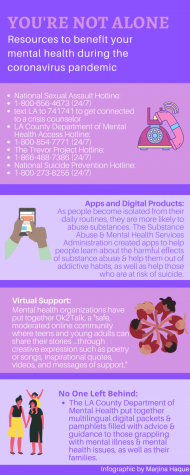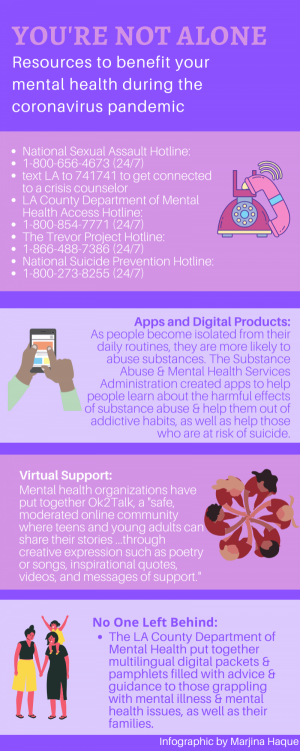Distance learning causes sleep deprivation among students
June 4, 2020

After the switch to distance learning, many students, including sophomore Tia Jarrett, have taken the liberty to stay up later or sleep in longer. As a result, students’ sleeping schedules are all over the place.
“Since quarantine started, my sleep schedule has definitely been a lot more inconsistent,” Jarrett said. “Some nights I’d stay up late and other times I’d get up super early for school.”
During this time in which students can’t rely on a set schedule such as waking up for school, teens are more likely to get less sleep than the recommended 10 hours. Sleep deprivation increases the chances of not being able to concentrate, poor grades, drowsy-driving, anxiety, depression and suicidal thoughts. With all the changes that have occurred throughout quarantine, students are slowly learning to adjust to this new lifestyle.
Distance learning gave students the freedom to do as they please without someone reminding them to do their work. As a result, teens are more lenient when it comes to their sleeping schedule. Most teens relied on that routine of waking up early for school to keep them on track.
Junior Samantha Mills is one of the many students who used to wake up every day at 6 a.m. to drive her and her sister to school. She would avoid sleeping late, to be more cautious about drowsy driving. Now that school has become remote, there isn’t a need to wake up as early as before. Although she claims her sleeping schedule fluctuates a lot, she finds herself usually falling asleep between 11 p.m. and 1 a.m.
“I stay up later now because I don’t have to drive every day and quarantine feels a bit like an extended weekend,” Mills said. “The rules are more lax and I’m now in charge of getting my work done.”
According to SleepFoundation.org, focusing on one’s health during the stay-at-home order will have tremendous benefits. During this pandemic, sleep has become essential to boost your physical and mental health. Sleep empowers the immune system, heightens brain function, and enhances your mood.
According to an article by the Better Health Channel, constant sleep deprivation can take effect on teens’ mental health, reducing their academic performance at school. There are various reasons a teen might lack sleep such as using screen-based devices, hectic school work schedules, hormonal time shifts, etc. Now that classes take place via the video chatting app Zoom, the time sets for each class also differ.
“I find it very hard to do the activities in a Zoom class when I have just woken up. Like Spanish, for example, that’s my earliest class (at 8) so I only have an hour to prep and get ready,” junior Jose Ramirez said. “Sometimes I just miss a class because I was tired and slept through it.”
Ramirez also mentioned how when he lacks sleep, he becomes easily irritated and tends to pay less attention to teachers in class. To avoid such situations, teens should disregard devices with screens for at least an hour before bed, go to sleep early on the weekend, stick to a schedule that works for them and stay active throughout the day so that they’re more physically tired at night.
“To try and better my sleep schedule, I think I need to be more active,” Ramirez said. “Being more active makes me use up more of my energy and hopefully making me go to sleep faster.”






















